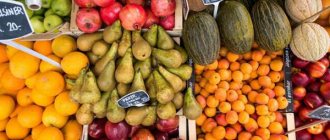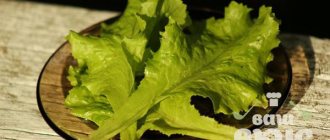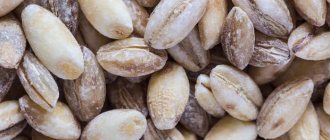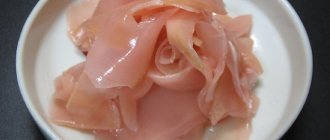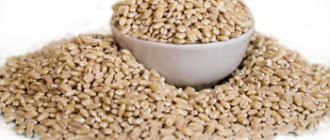Mechanisms of autography
Osumi has studied the relationship between spiritual practices and fasting for many years.
In the process, he proved that when there is a lack of nutrients, cells begin to self-destruct outdated resources. This is called autophagy. It is the only way to renew cellular structures. The term “autophagy” was introduced into biology back in 1974 before the discovery of Yoshinori Ohsumi.
It was invented by Christian de Duve, who also discovered autophagosomes, a “transport” for delivering cellular structures to lysosomes. The essence of Yoshinori Ohsumi's research is as follows:
- The biologist conducted an experiment on mutated fungi that do not have a protein decomposition mechanism.
- Yoshinori Ohsumi's autograph showed that only cells that did not receive nutrition did not change. Fungi that were in conditions of food shortage began to accumulate autophagosomes and use the resources they already had.
- Yoshinori Ohsumi's discovery is that cells that do not receive nutrients begin to “eat” unnecessary structures within themselves. As a result, during fasting a person does not feel hungry.
- Having studied the processes of autophagy in more detail, the Japanese scientist proved that after the access to food is stopped, the fat layer gradually decreases.
Yoshinori Ohsumi: “I never said that fasting promotes autophagy”
Watch the video where the scientist himself clearly talks about this!
Honestly, we are tired of reading articles in the style of “A Japanese man received the Nobel Prize for proving that fasting even cures cancer.” Where do people get this from?
They clearly read not with their eyes, but with some other mysterious places, forgive me.
For almost all articles about fasting, we receive comments in the style of “WHAT DO YOU THINK OSUMI WAS A NOBEL PRIZE FOR?!?!”, “THE AUTHOR KNOWS NOTHING ABOUT AUTOPHAGY, FOR WHICH THEY WAS GIVEN THE NOBEL PRIZE.
And a hundred more similar ones, the meaning is the same.
Let's figure out once and for all why this very doctor was given a bonus.
An indisputable fact: in 2021, Japanese scientist Yoshinori Ohsumi was awarded the Nobel Prize for the discovery and research of the mechanisms of autophagy.
And then some absolutely hasty and erroneous insinuations begin in the style of “THEY HAVE PROVED THAT HUNGER HEALS.”
No, they haven't proven it ! The prize was given not for this, but for the discovery at the genetic level of the most important cellular process (the genes that are responsible for it were found).
The phenomenon of autophagy itself has been known for a long time, back in the 50s of the twentieth century.
Its essence is that in the process of cell growth, some of its components that age must be replaced, and before that destroyed.
Moreover, there is even a video in which the scientist himself says that:
“I never said that the fasting process promotes autophagy, apparently something went wrong. Maybe someday I’ll change my mind, but for now, apparently, there was a mistake.”
We have a very detailed article on autophagy and its myths , here we list the main takeaways you need to know:
- The mechanism of autophagy is called self-phagocytosis and it works like this: “hungry” cells use their own proteins as a source of nutrition.
This is true for both healthy and diseased cells!
That is, the opposite situation occurs: in case of famine, the destruction of cellular components promotes cell survival, maintaining cellular energy levels.
Since the work and effect of autophagy have not been fully studied, it cannot be said that this is an unambiguously positive or negative process that is harmful or beneficial to us: it occurs differently in different diseases.
In some cases, autophagy is a completely positive adaptive response to stress that promotes survival, while in others it contributes to cell death and disease development.
For example, autophagy plays a really important role in cancer: it can be positive, protecting against cancer and destroying potentially dangerous cells, or negative, helping tumor cells survive .
Moreover, you must understand that treatment of cancer is a severe blow to all systems of the body!
After it, you need to recover, but where does a starving man get strength? Fasting is a lot of stress even for a healthy person, what can we say about a sick person?
- In fact, autophagy helps our body maintain homeostasis (constancy of the internal environment within one organism) during fasting.
Those. It is thanks to this process that the body can fast relatively harmlessly for some time, receiving the necessary amino acids from its own tissues.
This function keeps the body alive during interruptions in food supply.
- The fact that one cell has died does not mean that the new one formed in its place will be of better quality and no one can guarantee that it will not be a malignant tumor cell.
- Autophagy does not start during fasting; this mechanism never stops working, it is constant.
There are about 37 trillion cells in the human body, and of these, in the average adult, approximately 220-240 billion die and are replaced by new ones every day. This is approximately 2 million cells per second.
Different organs have different cell lifespans - the intestines are about 4 days, the skin is 12-20, and so on. By the time you've read this far, about a million cells have been replaced by new ones.
Those. It is impossible to completely cleanse yourself of all decay products stored in cells. While you (figuratively speaking) cleaned 10,000 of some cells, they formed again in a million others.
It's like eating so much food that you get full once and for all and stop wanting to eat. This is simply impossible - sooner or later any amount of food will be digested or eliminated with the help of nausea or, excuse me, diarrhea, and hello, hunger.
Why is everyone connecting fasting and autophagy? Hunger simply activates this process and makes it more accelerated.
The body, which ceases to have enough nutrition from the outside, begins to use its own resources, i.e. fasting goes through the process of autophagy - therefore (and for many other reasons) during a fast, it is not fat that is lost first.
You do not need to starve to start autophagy, this is technically not a side process that occurs only during hunger, but one of the main processes in the body, and its disruption is one of the main causes of metabolic disorders .
- There is simply no reliable data about what exactly hunger is, what its productivity is and how it affects the process itself.. Doesn't exist yet. And it is not clear whether they will exist.
What the scientist himself writes in his article from the official website of the Nobel Prize:
A better understanding of autophagy promises to help characterize the ambiguous relationships between genetics, phenotype, and disease, especially in identifying the conditions of induction and different modes of autophagy.
However, autophagy research is still in its early stages, and our understanding of the physiological role of autophagy in particular is only in its infancy.
The scientist himself, who received the Nobel Prize for autophagy and has been involved in science for 28 years, says that in general, nothing is particularly clear yet.
And people on the Internet understood everything and wrote 500 articles about the healing power of a hunger strike! Don't you think this is too presumptuous?..
Metabolic syndrome: a deadly quartet for those 50 and older
Nutrition is an important part of the treatment of any disease, but not the main one. If everything were so simple, then people would have long been treating oncology, HIV, etc. with fasting.
Alas, you cannot destroy cancer cells just by eating in some special way. Cancer is destroyed by chemotherapy, radiation therapy, hormonal treatment, and immunotherapy.
It is also impossible, for example, with the help of special products to force your thyroid gland to produce the amount of hormones that is needed - there are special medications for this!
Even diabetes research shows that even completely eliminating sugars (carbohydrates) is not a panacea for solving insulin problems!
Nutrition is always a support for the body, but not the main treatment.
We hope we have sufficiently convinced you that fasting does not “break down” your diseases and does not relieve you of them directly, through the destruction of “harmful” cells; this, alas, is an uncontrollable process for us (we hope, only for now).
We also recommend an article about how fasting does not cleanse your body .
- How hunger affects the body: table about 2, 3, 7, 14, 21 day fasting with explanations
- Alkalinization and acidification of the body at home: why is the alkaline diet a myth?
- My experience of water fasting: review for 1 day - without embellishment or sentimentality
[Total votes: 14 Average: 3.9/5]
Bone Wide
This article was reviewed by a certified nutritionist who has a bachelor's degree in nutrition and dietetics, D. G. Veremeev.
Articles are for informational and educational purposes only and are not a substitute for professional medical advice, diagnosis, or treatment. Always consult your physician with any questions you may have about a medical condition.
What is a power window
Ohsumi continued his research into intermittent fasting and its effects on muscles. He arranged “nutrition windows” for them - the time during which a person eats. For example, if a person has breakfast at 7 a.m., then the specified period opens at 8 a.m. If dinner falls at 8–10 p.m., then the window extends to 12–14 hours.
Studies conducted on animals showed that those individuals who periodically fasted felt better, lived longer and were less sick compared to those who ate a normal diet. It is worth noting that both groups received quality products. This means that a small window of nutrition is more beneficial for the body.
Its main properties:
- reduces the risk of breast cancer;
- increases UV protection;
- reduces blood pressure;
- improves sleep quality;
- reduces the risk of heart disease.
Influence of biological rhythms
The diet of the Japanese doctor, who received the Nobel Prize, is based on fluctuations in circadian rhythms. It is important not only to maintain the required interval, but also to choose the right time. The human body reacts to the change of day and night by releasing certain hormones. In the morning, cortisol is released, which leads to an increase in appetite and body temperature, and an acceleration of metabolic processes. The person is cheerful and full of energy. This is the best time for the main meal.
In the evening hours, the sleep hormone melatonin is produced. The body prepares for rest, digestive processes are inhibited, metabolism slows down, and body temperature decreases.
If you eat in the evening, your internal rhythms become disrupted:
- In the morning, cortisol levels are low, so the person has little energy;
- in the evening, the level of cortisol in the blood begins to rise, activity and a feeling of hunger appear, but it’s time for the body to rest;
- As a result, the risk of metabolic disorders, obesity, and diabetes increases.
Attention! Peak cortisol release occurs at 8:00, 13:00 and 19:00 hours. A couple of hours after the surge, the hormone level drops, regardless of whether there was a meal or not.
Therefore, if you experience severe hunger, which occurs periodically, it is enough to just wait it out for a while. You can drink a glass of water, tea or kefir, this will create a feeling of a full stomach. Gradually your appetite will disappear.
Fasting patterns
Please note that the Yoshinora Osumi system, or fasting diet, has several variations of intermittent fasting. The main ones are the following:
| Fasting scheme | Description |
| 16/8 | This is an eight-hour eating window, or three meals a day system. This cyclic fasting scheme is the most common. The bottom line is that you need to abstain from food for 16 hours during the day, and organize meals during the remaining 8 hours. Best option:
You can choose another option, the main thing is that there is an interval of 8 hours between extreme meals. The scheme can be followed daily. |
| 14/10 | A ten-hour eating window is the most gentle fasting scheme. Meals should be organized within 10 hours:
|
| 20/4 | Four-hour eating window:
|
| 24 | This is a daily fast from one meal to another, for example, from breakfast to breakfast the next day. It is allowed to carry out 1-2 times weekly. |
| 36 | The “every other day” scheme, the essence of which is fasting for 36 hours. The technique involves breakfast at 8 am and refusal to eat until 8 pm the next day. |
| 5/2 | For 5 days you need to eat well, and for 2 days off you need to fast or consume no more than 500 kcal. |
Autophagy and starvation
With the help of autophagy, you can prolong life and recover from the most severe diseases. This does not happen automatically because it starts extremely rarely. Yoshinori Ohsumi found that cells begin to digest their pathogenic parts only under conditions of severe stress. And one of the ways to create it is fasting.
When cells receive nutrition from the outside (in the process of digesting foods eaten by a person), there is no point in them doing additional work - recognizing their damaged elements and disposing of them. But, as soon as they do not receive any external support for a long time, they begin to look for a way out of the current situation. And the only salvation is those very extra particles that can be processed and consumed so as not to die.
It turns out that while working on autophagy, the Japanese scientist, unexpectedly for his research, also proved the benefits of fasting. It is this that starts this process and, accordingly, guarantees both a long life and relief from almost all diseases.
Cellular autophagy process
However, it is worth immediately making a reservation that in his studies Yoshinori Ohsumi describes in detail exclusively the process of autophagy: how it starts, how it proceeds, what affects it, what significance it has for human health and life, and other nuances. He does not offer his own fasting system, as many believe, like Nikolaev, Shchennikov or other researchers. He only mentioned that it is abstinence from food that creates stress conditions under which cells begin to cleanse themselves.
Therefore, it cannot be argued that Yoshinori Ohsumi was given the Nobel Prize precisely for fasting. No, he received it for describing the mechanisms of autophagy. But these two concepts are closely interrelated, and the first is much closer to the common man - this is where this discrepancy comes from.
Rules for intermittent fasting
Please note that until you get used to hunger, you can drink green or lightly brewed black tea without additives. The desire to eat something will be wave-like. As soon as a person drinks water, hunger goes away for several hours. Other rules of the intermittent fasting technique:
- During fasting, monitor your own sensations.
- Enlist the support of your loved ones.
- Drink plenty of water both during abstinence and during your eating window.
- Come out of fasting gradually - do not overeat the next day after finishing the method.
- Do not draw conclusions earlier than after a month of regular compliance with the rules.
- Don't let yourself think about hunger, get busy.
Progress of the study
The object of study were mutated fungi that are not capable of breaking down protein under normal conditions. When food comes from outside, this organic matter accumulates in mycocells. Using autography, Osumi proved that with severe nutritional restriction, autophagosomes accumulate in mushrooms - special structures that absorb and break down substances already accumulated in cells.
Animal studies have shown in parallel that intermittent fasting also causes similar processes. The result was an improvement in the well-being of individuals and a decrease in the incidence of diseases.
Conclusions drawn from experiments on fungi and animals can be extrapolated to the human body. Under starvation conditions, somatic cells begin to “eat” fat molecules. Thus, at the cellular level, the body does not experience “hunger”, since it receives the necessary energy from accumulated substances.
Contraindications
Fasting, even short-term, is not allowed for all categories of patients. Before you start following a technique, you need to study its limitations. Absolute contraindications include:
- lactation;
- rickets;
- exhaustion;
- anorexia;
- reduced BMI;
- open form of tuberculosis;
- disorders of the kidneys and liver;
- age less than 18 years;
- thyrotoxicosis;
- pregnancy;
- oncology;
- diseases of the heart and blood vessels.
Yoshinori Osumi's fasting method also has relative contraindications. These require a separate consultation with a doctor. Such restrictions include:
- gout;
- diabetes;
- taking medications regularly, including oral contraceptives.
Recommendations for Intermittent Fasting
To make it physically and mentally easier to withstand hunger, it is worth remembering several essential recommendations:
- To reduce hunger, you can drink warm water or green tea without sugar or any additives.
- To fully remove unnecessary metabolic products from the body, a sufficient amount of water is required. The volume of water drunk is calculated individually.
- The exit from fasting should be gradual. During this period, overeating and eating heavy foods is very dangerous.
- To make intermittent fasting easier, it is useful to mentally tune in to losing weight and getting healthier.
- Conclusions about the results of applying the chosen scheme can be drawn in at least a month.
Benefits of fasting
The phenomenon itself was discovered back in the 1960s, but then scientists were unable to fully understand its importance.
Thanks to autophagy, the cell is able to cope with the infection that has entered it, remove toxins and rejuvenate. Osumi was able to prove that the entire autophagy mechanism begins to work most efficiently when the body experiences stress, for example, starvation.
Autophagy is the body's internal renewal program, during which unnecessary parts of cells are eliminated on their own, while good elements remain to generate energy and create new, healthy cells. This process is critical in preventing cancer, protecting against infections, maintaining a healthy metabolism, and protecting against diseases such as diabetes.
Interesting about autophagy
Dysfunctional autophagy is directly linked to the development of Parkinson's disease, type 2 diabetes, cancer and many other age-related problems. Active research is currently underway to develop drugs that will help harness the power of autophagy to treat various diseases.
